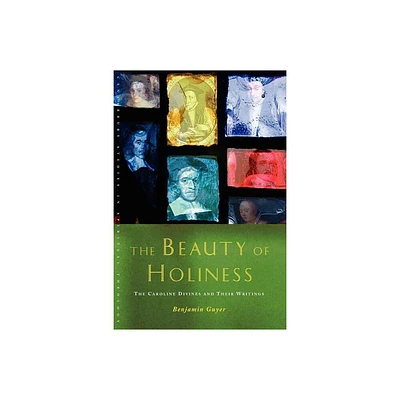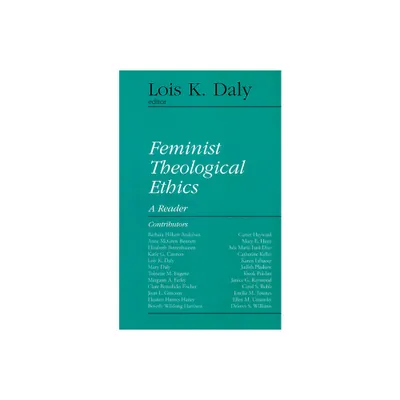Home
Habits and Holiness: Ethics, Theology, and Biopsychology
Loading Inventory...
Barnes and Noble
Habits and Holiness: Ethics, Theology, and Biopsychology
Current price: $34.95


Barnes and Noble
Habits and Holiness: Ethics, Theology, and Biopsychology
Current price: $34.95
Loading Inventory...
Size: OS
*Product Information may vary - to confirm product availability, pricing, and additional information please contact Barnes and Noble
The topic of
habitus
is one of Thomas Aquinas's greatest contributions to moral theology, but it has been generally neglected in theological scholarship until now.
Habits and Holiness
is the first work in English to explore Aquinas's rich theology of habit in all of its grandeur and depth.
shows that most facets of human life and behavior are greatly influenced by habits, which Thomas appraises as an analogous concept that is much broader than previous scholarship has recognized.
accomplishes three tasks. First, it gives a complete and coherent account of Aquinas's account of
habitus.
Most accounts of Aquinas's view of habitus focus almost exclusively on "Treatise on Habits" in the
Summa Theologiae
I-II, qq. 49-54, and speak of habitus in reference to the virtues. However, Aquinas speaks of
in many other places, especially his commentaries on Aristotle's works and his commentaries on Sacred Scripture. Aquinas employs the concept of habitus to explain a wide variety of human inclinations, such as instincts, personal and societal custom, acquired skills and virtues, original sin, grace, infused virtues, and Gifts of the Holy Spirit. Second, this book indicates how biological psychology illuminates and enriches Aquinas's account of habit, and vice versa. Finally,
provides readers with a framework for interpreting and utilizing the vast amount of practical habit literature that exists: it offers a practical analysis of habit development found in Aquinas's works and those of empirical studies. The topic of habits is a golden thread that helps readers find their way through Aquinas's extensive writings on morals. By describing the many kinds of habits we possess, and their widespread but often hidden effects in our lives, this book offers a new and unique reevaluation of many issues central to the moral life. It addresses childhood development, pagan virtue,
akrasia
, circumstances that limit free choice, how heroic virtue operates, and more. By seeing habits in general as a prism for understanding human action and its influences,
provides a unique and appealing synthesis of Thomistic virtue theory, the contemporary science of habits, and best practices for eliminating bad habits and living good habits.
habitus
is one of Thomas Aquinas's greatest contributions to moral theology, but it has been generally neglected in theological scholarship until now.
Habits and Holiness
is the first work in English to explore Aquinas's rich theology of habit in all of its grandeur and depth.
shows that most facets of human life and behavior are greatly influenced by habits, which Thomas appraises as an analogous concept that is much broader than previous scholarship has recognized.
accomplishes three tasks. First, it gives a complete and coherent account of Aquinas's account of
habitus.
Most accounts of Aquinas's view of habitus focus almost exclusively on "Treatise on Habits" in the
Summa Theologiae
I-II, qq. 49-54, and speak of habitus in reference to the virtues. However, Aquinas speaks of
in many other places, especially his commentaries on Aristotle's works and his commentaries on Sacred Scripture. Aquinas employs the concept of habitus to explain a wide variety of human inclinations, such as instincts, personal and societal custom, acquired skills and virtues, original sin, grace, infused virtues, and Gifts of the Holy Spirit. Second, this book indicates how biological psychology illuminates and enriches Aquinas's account of habit, and vice versa. Finally,
provides readers with a framework for interpreting and utilizing the vast amount of practical habit literature that exists: it offers a practical analysis of habit development found in Aquinas's works and those of empirical studies. The topic of habits is a golden thread that helps readers find their way through Aquinas's extensive writings on morals. By describing the many kinds of habits we possess, and their widespread but often hidden effects in our lives, this book offers a new and unique reevaluation of many issues central to the moral life. It addresses childhood development, pagan virtue,
akrasia
, circumstances that limit free choice, how heroic virtue operates, and more. By seeing habits in general as a prism for understanding human action and its influences,
provides a unique and appealing synthesis of Thomistic virtue theory, the contemporary science of habits, and best practices for eliminating bad habits and living good habits.


















